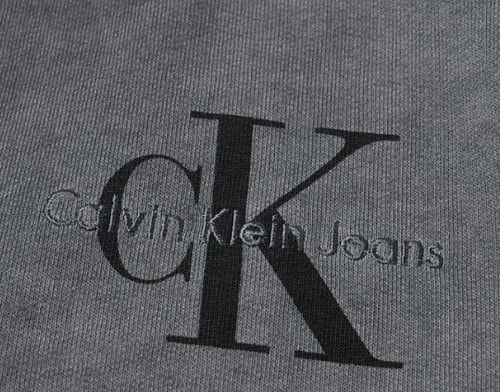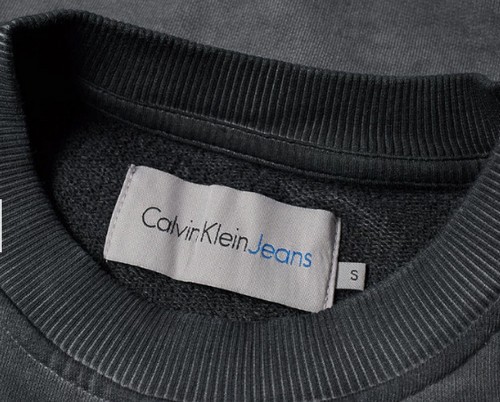Calvin Klein is a premium brand of luxury clothing sold in the USA. Founded by ace fashion designer Calvin Klein this fashion label makes and sells clothes as well as merchandise for both men and women. Currently, Calvin Klein is owned by Philips Van Heusen. Calvin when he founded the brand in the year 1967 redefined the American style of dressing through popularising the casual chic style of dressing.
Even today Calvin Klein is considered to be a trendsetter in casual outfits. In the 36 years of its existence before the company was sold to Philips Van Heusen, the designer brand had already built its credibility. In addition to clothing, the brand also makes fragrances and accessories.
The business interests of Calvin Klein are broadly classified into two – Calvin Klein Apparel which is responsible for the sales of its product line in both men and women’s wear and Calvin Klein Licensing which looks after the licensing agreements with third parties. The company gets almost 60 % of its earnings from Calvin Klein Apparel which also has under it the 115 retail stores that the brand owns.
Table of Contents
Strengths in the SWOT analysis of Calvin Klein
The following are the strengths of Calvin Klein :
- Presence in multiple domains of fashion: The main products of Calvin Klein are ready to wear fashionable clothes for men and women. In addition to this, they also have perfumes and accessories such as watches, eyewear, shoes, and jewelry for both men and women. The designer brand also has their exclusive line of home furnishings and furniture.
- Operational efficiency: The operational efficiency of the business comes from the manner in which they have segregated their businesses. The business interests of Calvin Klein are broadly classified into two – Calvin Klein Apparel which is responsible for the sales of its product line in both men and women’s wear and Calvin Klein Licensing which looks after the licensing agreements with third parties. The company gets almost 60 % of its earnings from Calvin Klein Apparel which also has under it the 115 retail stores that the brand owns. Calvin Klein has around 50 licenses for the three brands under it.
- Global Presence: Calvin Klein is a popular brand and it is sold in many countries around the world. Their primary market, however, is the USA which accounts for around 58 % of its total sales. The other leading markets in terms of market share are Europe and the Asia Pacific. Recently the brand also opened a series of stores across the Middle East.
- Astute Marketing: One reason for the astounding popularity of the brand Calvin Klein is its marketing strategy especially with regard to their advertisements. The brand has always used subliminal advertising which is sexually explicit to draw attention to their products. Through shocking advertisements, the brand has always stayed in the minds of their target segment and often been successful in building a bold image for the brand.
- Skille workmanship: Calvin Klein has always been associated with the best of designers and this makes their designs unique and trendy. This has been one of their core differentiators from competition and has also made them the preferred clothing choice of a number of celebrities.
Weaknesses in the SWOT analysis of Calvin Klein
Weaknesses are used to refer to areas where the business or the brand needs improvement. Some of the key weaknesses of UPS are:
- Synergy: Licensing constitutes a critical part of Calvin Kleins business model and the company finds it immensely challenging as well as expensive to coordinate amongst their licensees who are spread across all parts of the world.
- Image management: Calvin Klein has always been popular as an out of the box brand with quirky styles and creative designs. In an age of competition where in addition to global designer brands there are also a number of prominent local designers who are making a mark, the company is struggling to maintain its creative image in the market.
- Ethics: Calvin Klein has always been a controversial brand regarding its advertisements which are often criticised for its overt sexuality. In addition to it, the brand has also been questioned for copying other designers as well as for licensing issues.
Opportunities in the SWOT analysis of Calvin Klein
Some of the opportunities include:
- The market for kids: As the urban population has more money to spend many designer brands are moving into designer clothes and other merchandise for kids. This can be a market that can offer a lot of scope for a popular designer brand like Calvin Klein.
Threats in the SWOT analysis of Calvin Klein
Threats are those factors in the environment which can be detrimental to the growth of the business. Some of the threats include:
- Competition The main competitors of Calvin Klein are Gucci, Dolce &Gabbana, and Tommy Hilfiger etc.
Liked this post? Check out the complete series on SWOT

